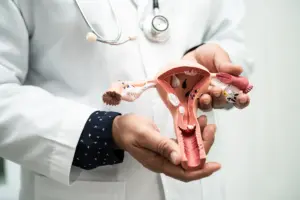What To Do If My Child Is Constipated
Constipation is a common problem for children. In fact, up to 20% of children experience constipation at one time or another. The good news is that constipation in children isn’t usually something to worry about. Often, it is short term and resolves with treatment.
Constipation in young children can be caused by being away from home, and changes in diet and activity. If your child is constipated, he/she will have infrequent bowel movements or hard, dry stools. Constipation most often happens when waste or stool moves too slowly through the digestive tract. This causes the stool to become hard and dry.
What to look out for
Children with constipation might experience abdominal pain, swollen tummies, and pain when they pass stool.
Look out for these signs: a reliance on enemas to pass stool, a child that is not growing appropriately, blood in the stool and a child that did not pass his/her first stool within the first 2 days of life.
Signs and symptoms of constipation in your child may include:
- Fewer than three bowel movements a week
- Bowel movements that are hard, dry, and hard to pass
- Pain while having a bowel movement
- Stomach pain
- Traces of liquid or pasty stool in your child’s underwear — a sign that stool is backed up in the intestine
- Blood on the surface of hard stool
If your child is scared that having a bowel movement will hurt, he/she might try to avoid it.
Causes of constipation
- Constipation may be caused by a diet that does not include enough fibre and water. Fibre and water assist the bowels to move as they should. Your child might become constipated often if he/she eats a lot of processed foods, cheeses, white bread, maize meal, and meats.
- Your child might ignore the urge to have a bowel movement if he/she is scared of the toilet or doesn’t want to take a break from playing. Some children might ignore internal urges if they do not want to use a bathroom away from home. Ignoring the urge to go makes it more difficult to go later. Painful bowel movements that are caused by big, hard stools also might lead to withholding.
- Constipation can sometimes be caused by medication. Babies can experience constipation as they move from breast milk to baby formula or from baby food to solid food. Toddlers who are toilet training can also experience constipation, particularly if they are not ready.
- A change in routine or pattern (such as travelling, starting a new school or stress) can cause constipation.
- Family history of constipation
- Dairy allergies or an intolerance to dairy products
Treatment of constipation
Investigating constipation might require blood tests, X-ray imaging and even a biopsy in theatre. The specific treatment of constipation for your child will depend on its cause. Most children with constipation respond well to conservative treatment, including dietary changes resulting in increased dietary fibre, increased fluid intake, a decrease in milk protein intake, and a decrease in intake of processed flours.
You should not give your children enemas, laxatives, or suppositories unless you are told to do so by your doctor.
Tips to prevent constipation in your child
- Give your child more water to drink.
- You should serve your child high fibre foods like whole grains, beans, fruit and vegetables. A diet that is rich in fibre can assist your child’s body to form a soft, bulky stool. If your little one isn’t used to a high-fibre diet, you can add a few grams of fibre a day to prevent gas and bloating.
- Do not give solid foods until your baby is six months old.
- Ensure your child gets enough exercise. Physical activity does nudge the bowels into action, so it is a good idea to encourage your child to be active outdoors.
- Ensure your child sits on the toilet often. Have your child sit on the loo for a while after a meal, as this is the time when the body most likely will need to pass a stool.
- Monitor your child’s milk intake. Some children can become constipated if they drink a lot of milk. Children aged 1-8 should have approximately 2 cups of milk a day.
- Create a regular meal schedule. Eating naturally stimulates the bowels, so regular meals might help your child develop routine bowel habits.
- Teach your child not to ignore the urge to poop.
When to see your doctor
While constipation in children usually isn’t serious, it is important to note that chronic constipation might lead to complications or signal an underlying condition. You need to take your child to your doctor if your child’s constipation lasts longer than two weeks or is accompanied by:
- Fever
- Not eating
- Blood in the stool
- Abdominal swelling
- Weight loss
- Pain during bowel movements
- Part of the intestine coming out of the anus (rectal prolapse)
Speak to your doctor if you have any concerns about your child’s constipation.
The lenmed Group is a world-class chain of Private Hospitals that brings quality healthcare to communities across Southern Africa.
For more information please contact:
Dr Nirav Patel, Paediatric Surgeon
BA (Hons), MA, MBBCh, FC Paed Surg, MMed
Lenmed Ahmed Kathrada Private Hospital
Tel: +27 (0) 87 087 9335
Email: [email protected] or [email protected]
Website: www.patelpaedsurgery.co.za
Disclaimer: Any information contained here is merely a guideline. Always visit your healthcare practitioner for any health-related advice or diagnosis.















